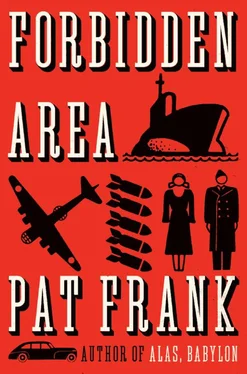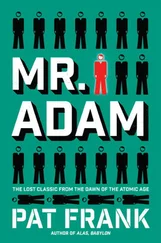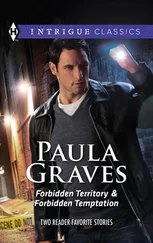This was as close as the Kremlin could come to surrender without losing complete control of the Russian masses, Clark Simmons knew. He deduced that there had been two revolts within the Kremlin. The first had been a division within the Presidium itself. The second, more definitive, had been the rebellion of the Red Army against Party domination.
Simmons decided to drive to New State and report for duty. He felt there was a chance that they might find his knowledge useful. 3
The President had not left the White House. According to his calculations and the Navy’s, danger to his personal safety could not develop before Monday morning, unless enemy planes were sighted at the DEW line. In such an eventuality the executive departments would disperse out of Washington. He and his personal staffs would retire to an underground command post a safe distance from the capital. There were two such shelters, each the center of an elaborate communications network, reserved for presidential use. One had been used in the Civil Defense rehearsals for evacuation. Its location was supposed to be secret, but of course it wasn’t. The location of the second, more distant from Washington, was actually secret, and it was from this second command post that he would continue his functions as Commander-in-Chief, when the time came. On the south lawn helicopters were waiting, their rotors slowly churning.
Now the President sat at his desk in the oval office of the administrative wing, watching the minutes jump up on his electric clock. The office was vast as a small ballroom, and often seemed to him a place awesome and lonely as a haunted wood, but now there was no empty space there. With him in this room were the Joint Chiefs of Staff, the members of the National Security Council, and the Director of Central Intelligence. And others, many others, but these others, while men of prestige and importance in their own spheres, were silent, unimportant, merging gray-white with the ivory panelling of the walls. Later they would tell their children and grandchildren that they had been present, and perhaps describe the scene in articles and books, explaining exactly what really happened. They would magnify their part in it, as the years passed, which is the way of politicians, statesmen, generals, and plain people, but in fact they played no part at all. The Constitution of the United States is so shaped that in a moment of supreme emergency all the responsibility, and therefore all the power, rushes into the hand and heart of one man.
Messages arrived steadily, were passed from hand to hand by the President’s secretaries and assistants, winnowed down to the most urgent and critical. These alone found their way to the President’s desk.
One such message was brought in by the Chairman of the Atomic Energy Commission, typed on a single sheet of paper. The President read it, read it again, frowned, and wished it weren’t there. But it was there, and having reached his desk at this moment had become part of history. It could not be ignored, or ever forgotten. But with a clean, clear decision to make in exactly one hour and eighteen minutes, it complicated his task immeasurably. His responsibility now embraced not only the people of the United States, but the world.
Moscow’s second broadcast, swiftly translated, reached him at once. He read it, looked up to witness the relentless march of the minutes, and shook his head. “That’s not enough,” he said. “Those submarines have got to be surrendered.”
Navy spoke. “I’d rather not have those submarines any closer to our coast than they are right now.”
“Can’t they be boarded at sea?”
“Yes, we can board them at sea. It’s possible, but risky. Even if they’re ordered to surrender, how do we know all their skippers will comply? And, sir, it’d only take one. Some fanatic captain might be willing to trade his life and his command for New York, and maybe Washington too.”
“So we let them get back to Russia?”
“No, sir! I want to sink ’em!”
A general spoke, a four-star general who had fought Germans and Italians for four years on the battlefields of Africa and Europe, and fought the Russians for ten across conference tables in Berlin and Vienna. “Sir,” he said, “we’ve got a lock on them. We can hit them where they live, safely. We’ve caught their fleet at sea. Their planes must be massed on their bases. All we have to do is proceed according to plan. We can smear every base, every industrial complex, once and for all.” The general’s voice cracked. He could not contain his anger and emotion. He held out his fists, clenched. “We can eliminate them, now and forever. That is self-preservation, sir. Our children can live in peace.”
The President watched another minute die. He had fifty-four minutes left. He lit a cigarette, and discovered that one was already burning in his ash tray, a fluted white clamshell bedded in gold, a token from the Japanese Emperor. A present from the Emperor, long ago, in appreciation of America’s forbearance in victory. For the past year, at his wife’s insistence, the President had limited himself to five cigarettes daily. Now he had smoked, or at least puffed on, at least thirty since he awoke with the news from Hibiscus at seven-fifteen that morning. He looked at the clock again. It was 2:09. It was his moment of decision. He said, “We can’t do it.”
He ground out both cigarettes, not heeding the rustle of surprise, the quick drawing of breath, that in the aggregate became a gasp, of the others in the office. “We can’t do it because if we killed Russia we might also kill the United States. We might kill everybody. I mean literally. I have this memorandum from the Atomic Energy Commission.” He picked it up and allowed it to flutter back to his desk. It was a pretty late hour to be getting something like this, he thought. But he knew government. It always took a crisis to blast out a difficult decision. He could imagine that they had argued about this memorandum for months, perhaps years, in the AEC. Probably not all the scientists agreed with it, or all five commissioners thought it properly worded. Probably there was dissent. But a majority had felt that they could not allow him to act until he had seen this caveat. They had unloaded the responsibility on him. That’s the way it always was, and always would be. It was the terrible price of the presidency. Responsibility was the silent assassin whose permanent home was the White House. A minute flipped. They all expected him to say more. They expected an explanation.
“You all know,” he said, “that for many years we have conducted very extensive research into the effects of excessive radiation, short range and long. At one time or another we’ve had at least forty scientific groups, in universities and foundations, look into it. I have just received a warning that an attack such as we have mounted, and are prepared to deliver, will not only eliminate Russia as a power, but will make a large part of Europe and Asia uninhabitable for months, perhaps for years. That’s not all. An attack of this sort will endanger life everywhere in the world. Oh, not instantly. Not all in a day, or a generation. The general speaks of his children. I am thinking of his children’s children as well. I have to. And any lesser attack, not completely crushing, would expose us to reprisal.” He turned his head until his eyes found a blue uniform among the officers clustered at the right of his desk. “Is that not true, General Keatton?”
Keatton was not prepared for the question, but he knew the answer. It had been reached, in staff studies, long ago. “That is true, Mr. President,” he replied at once. “We have to hit ’em everywhere, or nowhere. If we fail to eliminate all their bases we are bound to lose cities. A second attack, and perhaps a third, would be necessary.”
Читать дальше












